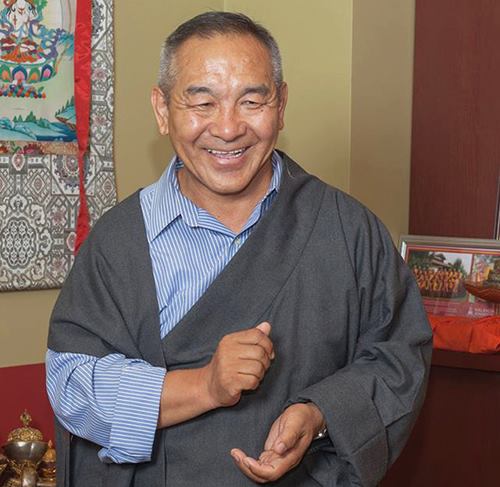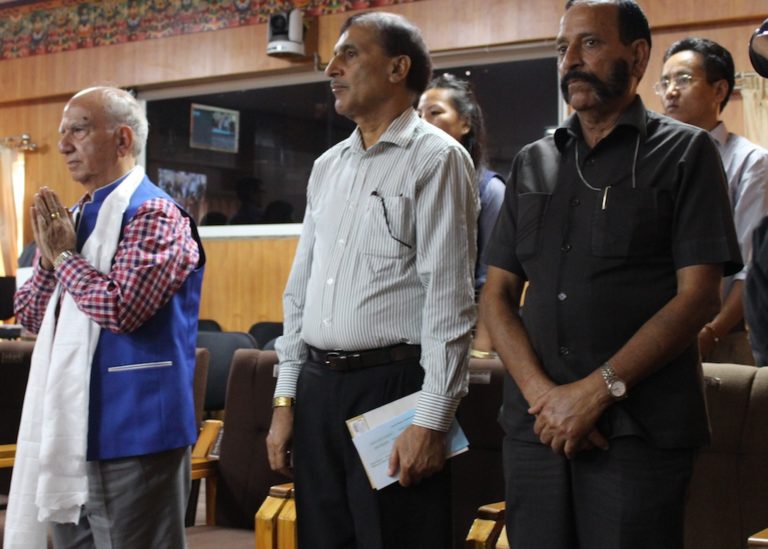The second session of the 16th Tibetan parliament-in-exile saw much dialogue on Sino-Tibetan communication, the situation inside Tibet, the status of Tibetans in exile and the future course of the Tibetan movement as well as changes in parliamentary positions and personnel.
The session, held from September 20 – 29, also presented annual reports by the seven departments of the Central Tibetan Administration (CTA) followed by questions regarding their activities, budgets and implementation of projects.
“In the light of ongoing repression of the Tibetan language, identity and religion, Chinese policies on Tibet are seen to be explicitly severe and more repressive,” said Speaker Khenpo Sonam Tenphel. He praised the “courage and spirit of the Tibetan people” remaining under Chinese rule inside Tibet.
The current situation regarding Sino-Tibetan communication was discussed. Members questioned Sikyong Lobsang Sangay about the effectiveness of the Tibetan parliament’s current strategy for initiating dialogue with the Chinese government. Former envoy for His Holiness the Dalai Lama, Kelsang Gyaltsen, suggested that communication has remained stagnant since 2010 due to a lack of pressure on the Chinese from the Tibetan government.
Dr Sangay responded that he and his cabinet are continuing to strive toward discussion between Bejing and Dharamshala, and drew attention to the importance of the Chinese government’s lack of response to Tibetan efforts. Dr Sangay said the issue is sensitive and called on parliament to cease questioning the details.
This session also saw changes in parliamentary positions. Dr Ngawang Rabgyal gained the majority vote to replace Tsering Dhondup as the new Justice Commissioner of the Tibetan Supreme Justice Commission. Dr Rabgyal has served the CTA since 1980, with positions including Representative of His Holiness the Dalai Lama in the United States and Russia, and most recently, in 2015, as Secretary of the Department of Education.
Tenzin Dhardon Sharling was voted out as potential Kalon for the Department of Information and International Relations. Sharling was Sikyong Lobsang Sangay’s nominee for the position.
Khenpo Sonam Tenphel in his concluding speech stressed the importance of engaging in discussions based on reason and logic instead of resorting to personal attacks during parliamentary proceedings. He appealed to Tibetans to renew their efforts to contribute in their own capacity to the preservation of the rich Tibetan linguistic heritage.
Honourable Professor Shanta Kumar, former Chief Minister of Himachal Pradesh and Convener of All Party Indian Parliamentary Forum for Tibet graced the Tibetan parliament session.
A two-member delegation from the Indian Parliament, Shri Satyavrat Chaturvedi, MP, Rajya Sabha and Shri Tamradhwaj Sahu, MP, Lok Sabha, together with five officials, visited the Tibetan parliament to observe its session.







 Print
Print Email
Email